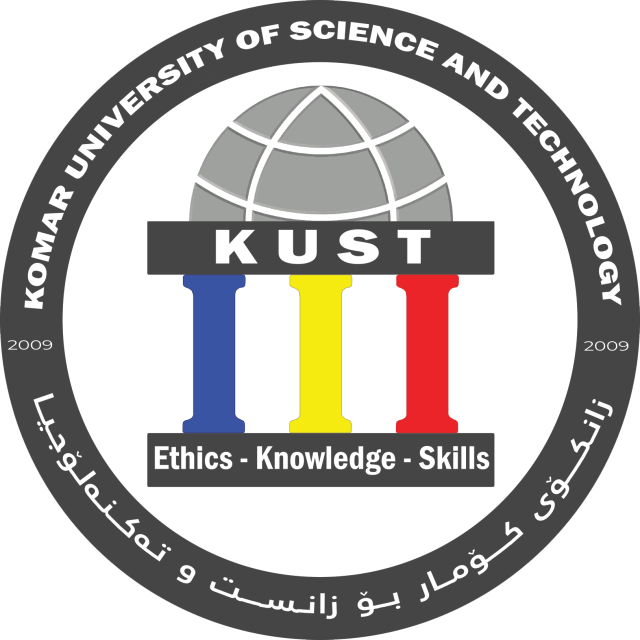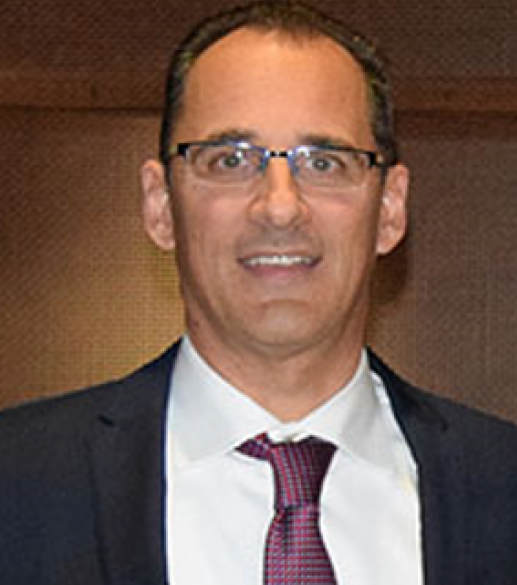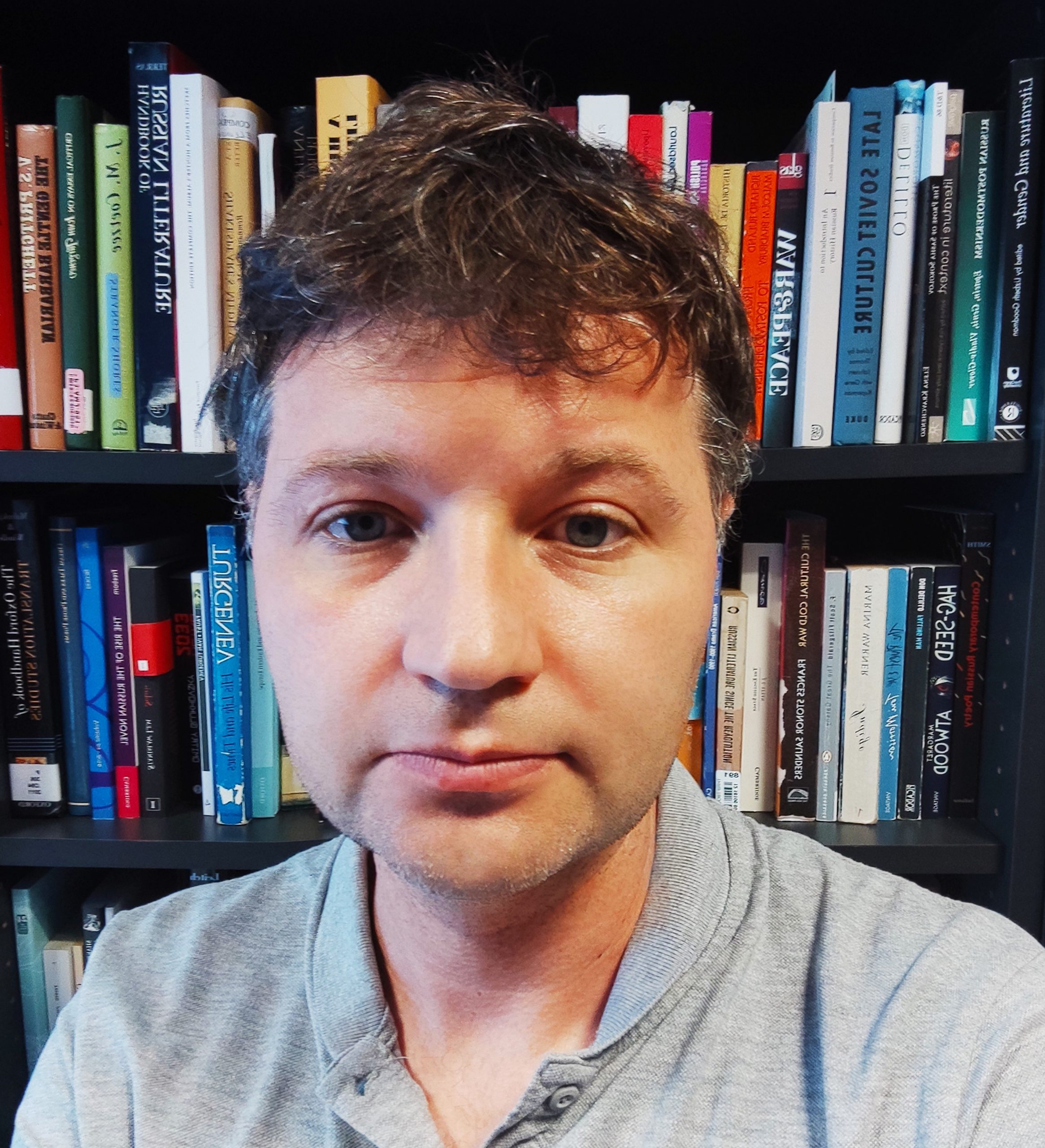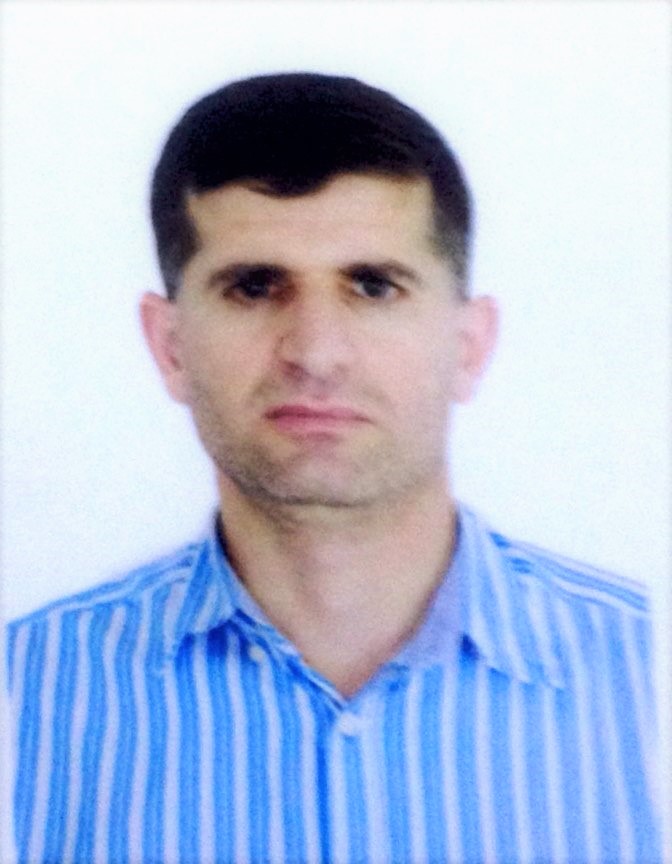Due to the current situation of COVID-19 in Kurdistan and other places, and researchers’ requests, the conference committee decided to change the conference date from 1-2 of December 2021 to 9-10 of March 2022.
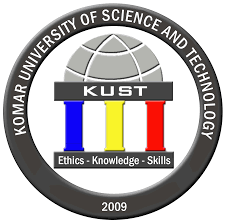 |
International Conference on |
 |
|---|
Call for papers
The English Department, Komar University of Science and Technology (KUST) in Kurdistan Region of Iraq, in cooperation with the Arab Society of English Language Studies and Arab World Language Journal, is pleased to announce the Call For Papers for an International Conference, which will be held on 9-10 March 2022 in Sulaymania City, Kurdistan Region. Iraq.
Themes and Objectives
The main theme of the conference will be the status of the English Studies. The motivation for such a focus stems from the controversies that have emerged as a result of noticeable diffrences between the rapidly-changing status of the English language in the Middle East and the continuous efforts on the part of policy-makers to respond to these changes. One main concern is to frame these efforts within a general curriculum development approach in order to make sense of the various reform efforts, their objectives, focus, and effectiveness. This has implications not only for English Studies but also for two other areas, namely English as part of the Language and Communication module and English as a teaching medium for content subjects in other departments and faculties.
The objective of the conference is to bring together researchers and practitioners in the field of English Studies at various levels over discussions of various themes building upon their classroom experiences and field research tracking day-to-day challenges and possibilities. The conference will address a range of critically important themes relevant to the situation of English in higher education with a focus on methodological issues pertaining to emerging challenges of the 21st century. While the teaching of English, in particular, has benefitted from research in applied linguistics and TEFL to reform its methodologies, though controversial, the situation in other areas is quite unclear, especially the challenges and obstacles confronted by English language learners and instructors during and after Covid-19.
Scientific Committee
1- Professor Dr. Hoshang Farooq Jawad
English language and linguistics at University of Sulaimani, and Komar University of Science and Technology, both located in the city of Sulaimani, Iraqi Kurdistan region.
2- Professor Anzhelika Solodka, Ph.D.
Faculty of Foreign Languages, V.O. Sukhomlynsky National University of Mykolaiv, Ukraine
3- Prof. Kimberly Bunts-Anderson, Ph.D.
Department of Social Sciences and Fine Arts, Northern Marianas College, Saipan, USA
4- Dr. Rania M Rafik Khalil, Ph.D.
Research & Postgraduate Studies Coordinator, Advising and Language Support Office (ALSO) Coordinator
Acting Director BUE Research Centre for Irish Studies (RCIS), The British University in Egypt (BUE)
5- Dr Alan Ali Saeed, Ph.D.
6- Kochar Ali Saeed
Call for papers
Themes and Objectives
The main theme of the conference will be the status of theEnglish Studies. The motivation for such a focus stems from the controversies that have emerged as a result of noticeable ies between the rapidly-changing status of the English language in the Middle East and the continuous efforts on the part of policy-makers to respond to these changes. One main concern is to frame these efforts within a general curriculum development approach in order to make sense of the various reform efforts, their objectives, focus, and effectiveness. This has implications not only for English Studies but also for two other areas, namely English as part of the Language and Communication module and English as a teaching medium for content subjects in other departments and faculties.
The objective of the conference is to bring together researchers and practitioners in the field of English Studies at various levels over discussions of various themes building upon their classroom experiences and field research tracking day-to-day challenges and possibilities. The conference will address a range of critically important themes relevant to the situation of English in higher education with a focus on methodological issues pertaining to emerging challenges of the 21st century. While the teaching of English, in particular, has benefitted from research in applied linguistics and TEFL to reform its methodologies, though controversial, the situation in other areas is quite unclear, especially the challenges and obstacles confronted by English language learners and instructors during and after Covid-19.
The conference will feature plenary speakers among some of the leading researchers in the field. We are inviting proposals for paper presentations and publications, in a special issue, in the fields of Linguistics, Applied Linguistics, Cultural Studies, Translation, and Literature. The topic suggestions include, but are not limited to:
- Teaching and Learning of English as a Foreign/Second Language for Iraqi-Kurdish learners.
- model in Digital Teaching EFL/ESL Learners.
- Curriculum Development: New Trends in Higher Education
- Educational Reform(s): the State of the Art and Critical Evaluations
- Methods for Teaching General English and English for Specific Purposes
- Effective Teaching Methodologies in Literature CoursesField-specific Teaching Methodologies: English as an Instruction Medium for the Scientific and Technical Fields.
- Interdisciplinarity in Language Teaching and Learning
- Teaching and Learning in the Digital Age
- Assessment Practices in Teaching
- Role of Culture in English Language Teaching and Learning
- Role of English in Globalised Contexts
- Teaching English and Cultural Agenda: Relativism vs. Absolutism
- Dialogic learning and teaching
- Culture in the classroom: textbooks and cultural representation in GE and ESP.
- Teaching English and cultural agenda: relativism Vs absolutism.
- Culture and gender representation in higher education
- Self and otherness: ethnocentrism Vs cosmopolitanism.
- Oral history and translation: from pristine, oral accounts to elaborate plot composition.
- New approaches and theories in translation
- Culture between translatability and translation.
- Western hegemony: globalization and neo-imperialism
- Virtues and virtual communication: cultural change Vs alienation
- Modern and Postmodern literature
- Comparative Literature
- Modern Literary Theory
- Renaissance Literature
- Shakespearean Plays
- Theorizing transnational literature (world literature, comparative literature, transnational literature)
- Minority literature
- Literary representations of censorship
- American literature
- American Dream in Literature
- World Literature in English
- Studies Science Fiction
- Translation theory and practice and global changes
Submission
Abstracts and papers should be sent to both of the following addresses by the due date specified above:
Important dates
December 30, 2021: Deadline for submitting abstract.
February 15, 2022: Deadline for submitting full papers for publication.
Two-Days Conference: 09-10 March 2022: Conference date
Publication
Selected papers will be published in the Arab World English journal in refereed proceedings in collaboration with the English Department, Komar University of Science and Technology (KUST) Kurdistan Region, Iraq. Paper proposals should follow the AWEJ submissions guidelines in the following link: https://awej.org/awej-template/ Arab World English journal has been indexed in Web of Science by Thomson Reuter https://awej.org/academic-recognition/
Venue:
Komar University of Science and Technology (KUST) Kurdistan Region, Iraq,
Language of the conference: English.
Registration Fees:
$40 (Local participants)
$40 (Virtually (online) participants )
$90 (International participants).
$300 Publication fee single author (+$50 for each author)
Useful information:
Conference fees will offer free access to all sessions, coffee breaks, conference materials, and two (lunch).
Participant of the conference can stay in any of the following hotels. They can reservice their rooms directly online or contact (elts@komar.edu.iq) to reserve the rooms for you. All the hotels are near to the conference venue.
1- Ramada Hotel
This hotel has especial discount for our participants.
- 77$ per night with breakfast included.
- More details about the hotel
2- Dawa Hotel and Restaurant
This hotel has especial discount for our participants.
- Single bedroom $45 for a night.
- Triple bedroom $65 for a night.
- More Details about the Hotel
3- Grand Millennium Hotel Sulaimani
4- Copthorne Hotel Baranan
